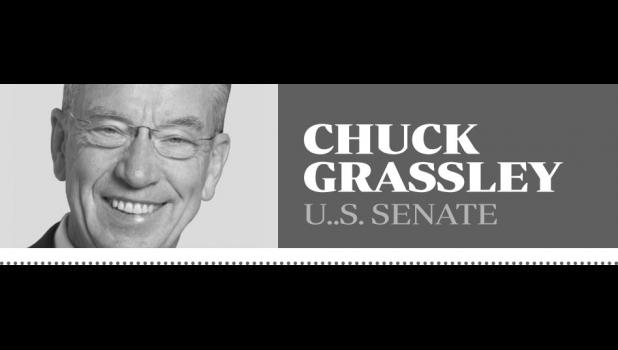Big Oil exploits old loophole
Q: What is the Mineral Leasing Act of 1920?
A: The century-old federal energy law established the leasing system that companies pay for the rights to extract oil and gas from public lands.
It also set the royalty fees that oil, natural gas and coal companies pay on the profits made from the minerals extracted from public land. Federal and state governments share the fees.
The Bureau of Land Management under the U.S. Department of Interior administers the law and awards leases by competitive bidding. Oil and natural gas companies are allowed 10-year leasing contracts and pay a royalty of 12.5 percent of the value of the oil and gas produced.
These rates haven’t changed for onshore production in the last 100 years.
The law no longer reflects fair market value. It has become a sweetheart deal for legacy energy companies. It’s shortchanging the taxpayer and depriving public coffers from their fair share of revenue generated from public lands.
Updating the Mineral Leasing Act would restore tax fairness and help pay for public services that provide community benefit, such as infrastructure, health care and law enforcement.
According to the Department of Interior, oil production from lands and waters managed by the federal government surpassed one billion barrels for the first time in history last year. Approximately one-quarter of U.S. oil is produced from federal lands and it’s time for American taxpayers to get their fair share of returns from that oil.
Q: What reforms are you proposing to federal mineral leasing laws?
A: Good fiscal stewardship of the public purse calls for Congress to bring mineral leasing rates into the 21st century.
As a taxpayer watchdog, I work tirelessly to uphold the public trust and hold government accountable to the American people. My oversight work covers both sides of the federal ledger: spending going out and revenue coming in to the federal treasury.
The sprawling federal bureaucracy provides plenty of opportunities for wrongdoers to line their pockets at taxpayer expense. That’s one reason I champion whistleblower protection laws and keep federal agencies on their toes with my oversight work to ensure hard-earned tax dollars are spent as Congress intended.
As chairman of the tax-writing Senate Finance Committee, I also keep close check on tax receipts coming into the federal treasury. Tax fairness requires all Americans to pay what is legally owed, otherwise an unchecked tax gap undermines voluntary compliance and shifts the burden to law-abiding taxpayers who don’t underpay or dodge their liability altogether.
Closing loopholes in the tax code is another important way for Congress to restore fairness and pay for public services. That’s why I’ve worked to close illegal, off-shore tax shelters, stop tax avoidance schemes and prevent shell companies from hiding assets from law enforcement and tax authorities.
Bringing mineral leasing laws into the 21st century would close a 100-year-old loophole that oil companies exploit at taxpayer expense.
In February, Sen. Tom Udall of New Mexico and I introduced the bipartisan Fair Returns for Public Lands Act of 2020 on the 100th anniversary of the Mineral Leasing Act that was signed into law by President Woodrow Wilson.
Our bill provides a simple remedy to bring equity to federal leasing rates. It would increase minimum bids for leasing public lands from $2/acre to $10/acre and boost the royalty rate from 12.5 percent to 18.75 percent, putting the federal rate on par with offshore rates and what many oil-producing states charge on state-owned land.
For example, the state of Texas charges a 25 percent royalty on its state lands, while states in the Rocky Mountain West charge royalties between 16.67 percent and 18.75 percent.
According to estimates by the nonpartisan Congressional Budget Office and Government Accountability Office, our reforms would generate $200 million in net federal income over the next decade with negligible impact on production.
What’s more, our bill would allow for mandatory adjustments to ensure rental rates account for inflation, at least every four years.
These common sense reforms would bring oil leasing into the 21st century and restore tax fairness for the American public.
It’s time to end corporate welfare and Big Oil profiteering on the public dime.
- Log in to post comments

